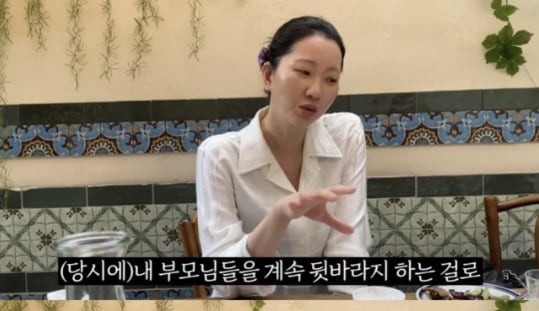Jang Yoon-ju Opens Up About Supporting Her Parents After Marriage
South Korean model and TV personality Jang Yoon-ju recently shared her emotional struggles of continuing to financially and emotionally support her parents even after marriage. Her honest confession resonated deeply with many, especially in a country where filial duty (the cultural expectation to care for one’s parents) remains a strong social norm.
Despite taking on new roles as a wife and mother, Jang expressed both love and pressure over her ongoing responsibility to her parents. Her heartfelt remarks touched on the cultural foundation beneath these expectations—how tradition sees caring for parents as the honorable obligation of grown children.

Family Responsibility: Honorable Duty or Heavy Burden?
Why Tradition Still Matters
In cultures like Korea, Japan, and many other parts of Asia, taking care of parents is not just encouraged—it’s expected. It’s deeply tied to Confucian values that promote loyalty, gratitude, and family unity. Jang’s story reinforces these ideals, reminding many Koreans of the sacrifices made by prior generations.
In East Asian societies, where state-sponsored elder care isn’t as comprehensive as in some Western countries, families become the de facto (default) safety net. That means adult children, regardless of their own circumstances, often feel obligated to take care of their aging parents both financially and physically.
Jang’s admission reignited appreciation for these values and highlighted how caregiving can also strengthen family bonds. Her story resonated with audiences who regard caregiving as an act of love and gratitude, not just duty.
The Modern Dilemma: Personal Life vs. Family Expectations
But not everyone sees it this way. For many—especially women balancing careers, marriages, and motherhood—these traditional expectations clash with modern goals for self-fulfillment and personal freedom.
In Jang’s case, the emotional weight of caregiving compounds her already demanding life. Critics point out that society too often places this burden on women, deepening gender inequality and leaving sons largely off the hook.
In the U.S., support for elderly parents is usually handled differently. While some families do live together, it's far more common to rely on retirement savings, government programs like Social Security and Medicare, or professional caregivers. This approach can reduce family conflict and encourage independence on both ends.
Jang's experience reveals that in South Korea, tradition still outweighs modern perspectives. But there's growing discussion around shifting some of that responsibility from individuals to society—through policy reforms and better elder care infrastructure.
Seeking Balance: A New Way Forward
Jang Yoon-ju’s openness raises one essential question: How can we balance traditional family values with the demands of modern life?
Many argue that continuing to care for parents shouldn't come at the cost of one’s own happiness or personal growth. That's especially true for women, who disproportionately shoulder domestic and familial responsibilities.
Critics also call for systemic change, like expanding public eldercare services, tax benefits for caregivers, and more flexible working policies. Countries such as Sweden and Norway lead in this area, offering robust state support for elder care that reduces the burden on families while preserving dignity for the elderly.
As more stories like Jang’s emerge, public awareness is growing. Younger generations in Korea and other traditionally patriarchal societies are beginning to question outdated norms and advocate for a shared, communal approach to caring for elders. And Jang, by using her platform, is contributing meaningfully to that conversation.
In the end, Jang’s experience serves not only as a poignant personal story but also as a mirror reflecting a society in the middle of cultural transformation. And perhaps that's her greatest impact—not just modeling fashion, but modeling vulnerability and honesty in tackling the emotional weight that often goes unspoken.